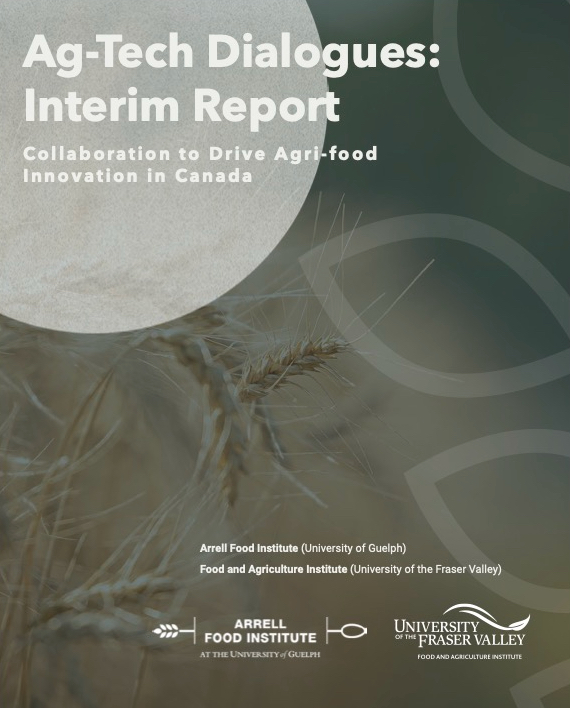How do we scale agricultural technology and innovation in the province and country?
Emerging agricultural technologies and techniques have the potential for contributing to sustainable food and farms systems; however, this potential can only be realized through scaling up and widespread implementation. FAI has done theoretical research related to this question; namely, FAI and colleagues have written on the problem with the current thinking around agriculture being constrained by a ‘large-scale, industrial farm versus small-scale, organic farm’ paradigm. The team subsequently defined a new agricultural approach, which focuses on the use of technology for producing high-quality local foods with small environmental footprints. FAI is also engaging in research on opportunities and best practices for incubator and accelerator programs, which can stimulate growth and uptake in agricultural technologies for advancing a new agricultural approach that involves the use of technologies for producing local, accessible, and environmentally-friendly foods.
Learn more about the FAI's scaling up innovation research projects:
• Incubator and Accelerator
• BC Food Web
Glaros, A., Marquis, S., Major, C., Quarshie, P., Ashton, L., Green, A. G., Kc, K. B., Newman, L., Newell, R., Yada, R., & Fraser, E. D. (2021). Horizon scanning and review of the impact of five food and food production models for the global food system in 2050. Trends in Food Science & Technology. https://doi.org/10.1016/j.tifs.2021.11.013
Green, A. G., Abdulai, A. R., Duncan, E., Glaros, A., Campbell, M., Newell, R., Quarshie, P., KC, K. B., Newman, L., Nost, E., & Fraser, E. D. (2021). A scoping review of the digital agricultural revolution and ecosystem services: implications for Canadian policy and research agendas. FACETS. 6(1): 1955-1985. https://doi.org/10.1139/facets-2021-0017
Newman, L., Newell, R., Dring, C., Glaros, A., Fraser, E., Mendly-Zambo, Z., Green, A. G., & KC, K. B. (2023). Agriculture for the Anthropocene: novel applications of technology and the future of food. Food Security. https://doi.org/10.1007/s12571-023-01356-6
Newell, R., Newman, L., & Mendly-Zambo, Z. (2021). The role of incubators and accelerators in the fourth agricultural revolution: A case study of Canada. Agriculture, 11, 1066. https://doi.org/10.3390/agriculture11111066
Newell, R., Newman, L., Mendly-Zambo, Z., Newman, K., & White, C. (2021). Incubators, accelerators, and agricultural technology and innovation. In CityAge: Building Agritech Clusters, Online. June 3rd, 2021.

